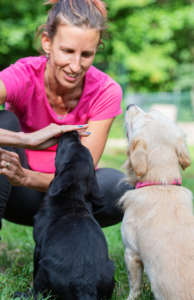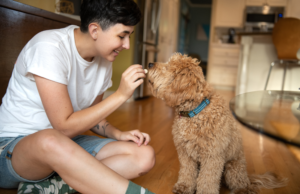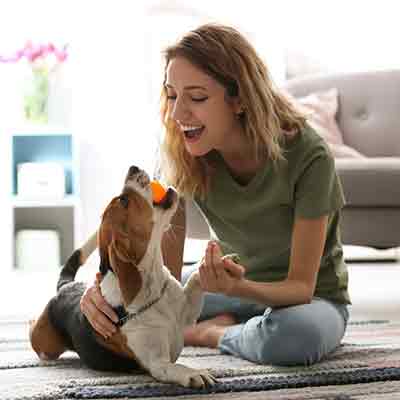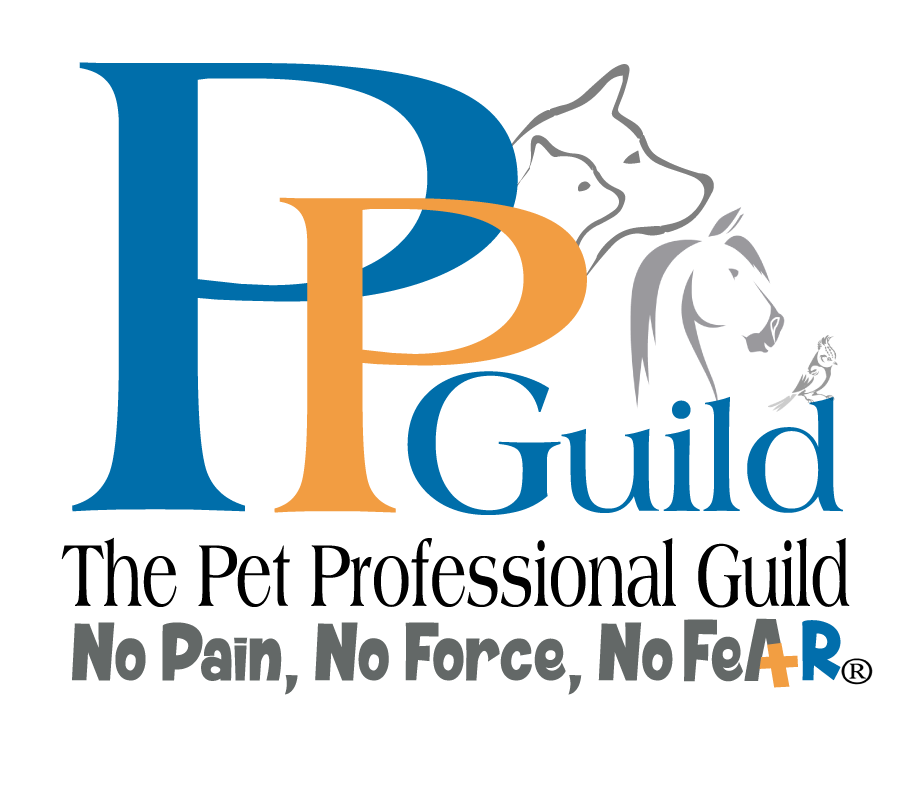When it come to training our puppies, the words “obedience skills” are often used and by nature, evoke a sense of seriousness and formality. We envision rigorous training sessions, a stern feeling, and an overall sense of responsibility to “get it right”. However, what if I told you that ranking good manners (or obedience skills, as some call it) as just tricks could lead to more effective and enjoyable training for both you and your puppy? What is the difference between obedience training vs. trick training?
The Perception of Tricks vs. Skills- a Puppy’s World View on Obedience Training:
Have you ever stopped to consider how your puppy perceives the training process? From their point of view, all the behaviors we teach them, whether it’s “sit,” “stay,” or “roll over,” are essentially just tricks. Puppies don’t come into the world knowing that coming when called could be a life-saving skill, while “play dead” is just for fun. Your puppy doesn’t realize that some “tricks” are more important to you than others. To them, every behavior is an opportunity to explore, engage, and earn rewards. Understanding this helps us view training as a chance to play, connect, and bond with our puppies.
Puppy Training: Playful Teaching for Positive Results:
Think about how you approach teaching a new trick versus an obedience skill. When teaching tricks, like “shake,” we often adopt a more relaxed and fun approach. We use cheerful tones, rewards, and laughter. Our whole demeaner and interaction with our puppy is completely different. We are loose and more fun.
On the other hand, when working on obedience skills, we might unintentionally adopt a serious tone, become more rigid, and feel the pressure to “get it right”. We can generally be less fun. Which scenario sounds like a better learning environment for you puppy? Embracing a playful attitude while teaching all behaviors can create a positive learning environment, making training enjoyable more enjoyable not only for your puppy, but more fun for you, too.
The Power of Play in Learning:
Puppies, just like human children, learn best through play. Playfulness engages their curiosity and taps into their natural instincts. By integrating training into playtime, you create an atmosphere where your puppy is eager to participate and explore new behaviors. Incorporating games into training sessions, such as incorporating “hide and seek” into recall practice or using toys during teaching, keeps the learning process exciting and interactive. Having fun and teaching “tricks” can boost your puppy’s confidence.
It’s All Trick Training- Changing Our Demeaner, Changing Their Experience:
When we reframe “obedience training skills” as tricks, our demeanor naturally shifts. We become more relaxed, patient, and less fixated on perfection. This change in our attitude has a significant impact on our puppies. They sense our emotions and can feel our tensions. If we’re stressed, they may become anxious or reluctant. Conversely, if we approach training with enthusiasm and a lighthearted attitude, our puppies are more likely to respond positively.
The Mindset Shift When Training Your Puppy- From Work to Play:
Our mindset plays a crucial role in how we approach training. When we view obedience skills as tedious tasks, it becomes work we have to complete, a task we must perfect or get right. On the other hand, when we treat all training as an opportunity to play, bond, and have fun, we create an environment where both guardian and puppy look forward to spending time together. This shift in perspective not only enhances the training experience but also strengthens the human-puppy relationship.
Final Words on Obedience Training Skills vs Trick Training:
In conclusion, redefining obedience skills (good manners training) as tricks has the potential to alter the interactions and the way we train our puppies. By recognizing that every behavior we teach is an opportunity for engagement and fun, we create a positive atmosphere for learning… after all, they are all just tricks to your dog. Embracing playfulness, maintaining a cheerful demeanor, and integrating training into games can lead to more successful training outcomes. So, let’s embrace the trickster within us and embark on a journey of joyful training with our puppies.
Ready to embark on a journey of joyful training with your puppy? Yes, I need to get my adolescent puppy back on track with training. Click here to get the help you need.












